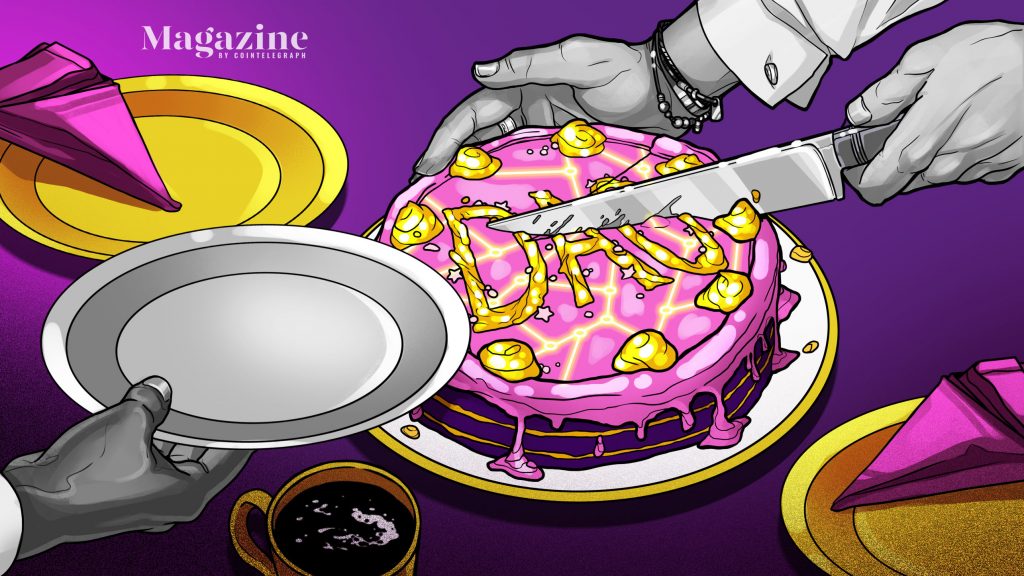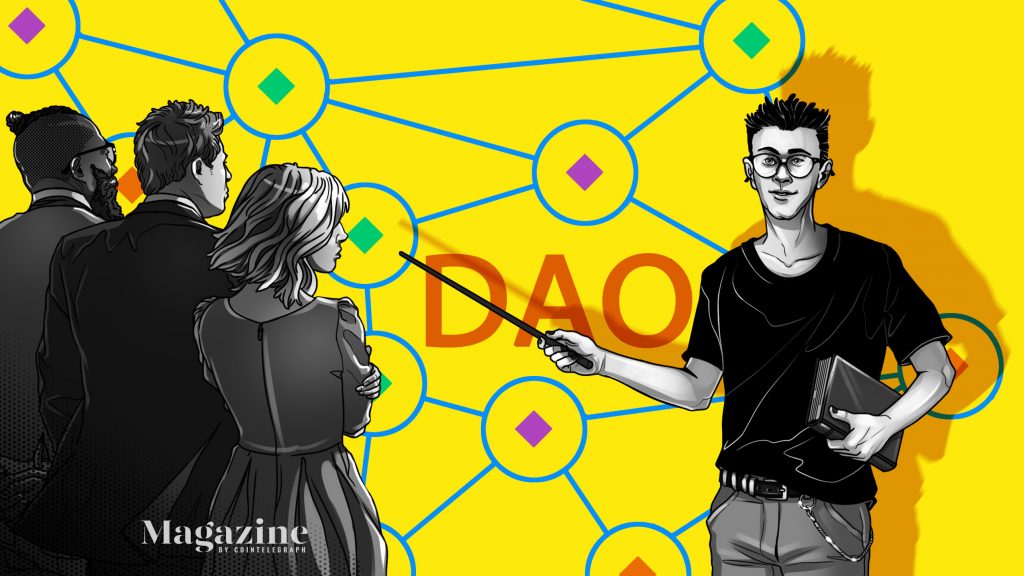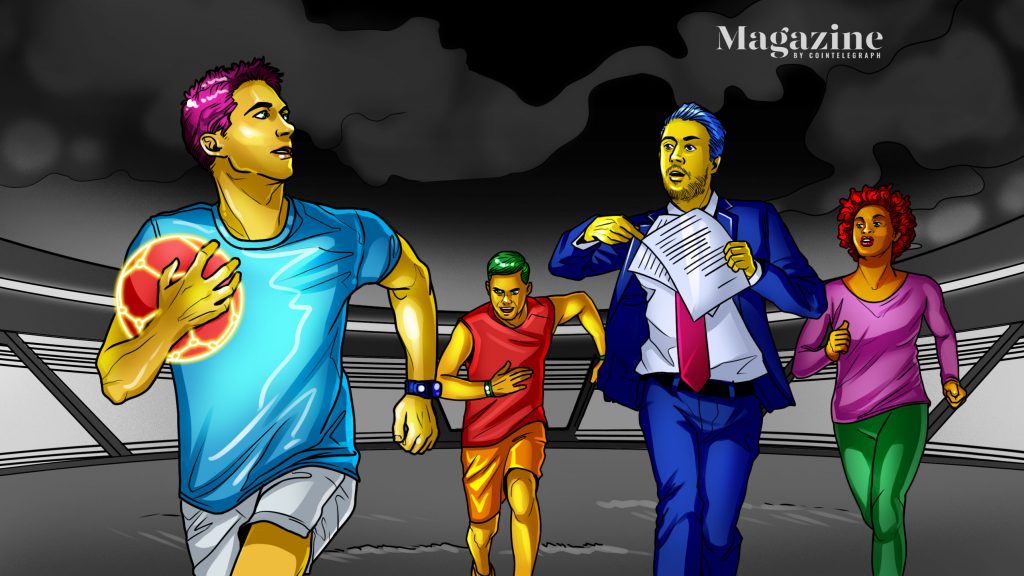Decentralized autonomous organizations come in all sizes and flavors. Some can seem sweet; others turn sour. It can be fun and interesting to create one that suits your needs and satisfies your hunger for something new.
We talk to the master chefs — Noam Hof of DeepDAO, Harry Wilson of Aragon, and Fabien of Snapshot — who are mixing up new and exciting recipes for participatory goodness that you can bake at home.
A DAO is an online community that collectively controls a cryptocurrency fund to achieve a particular goal — whether buying a copy of the United States constitution or running a DeFi protocol — explains Wilson from Aragon, an organization that “midwifes” DAOs and has helped usher almost 4,000 DAOs into existence.
“The idea is attempting to automate as many exchanges between people as possible and making it trustless so you don’t need to trust people,” Wilson explains. “This makes it easier to collaborate with people that you meet online or to create a global team.”
You’ll need a good idea and a recipe for how to achieve success. Is it going to have the substance to make a fulfilling meal, or will it collapse like a badly done souffle?
You’ll also need a set of tools — and unique ingredients — and some collaborators to help you bring this banquet to the table for more people to enjoy.
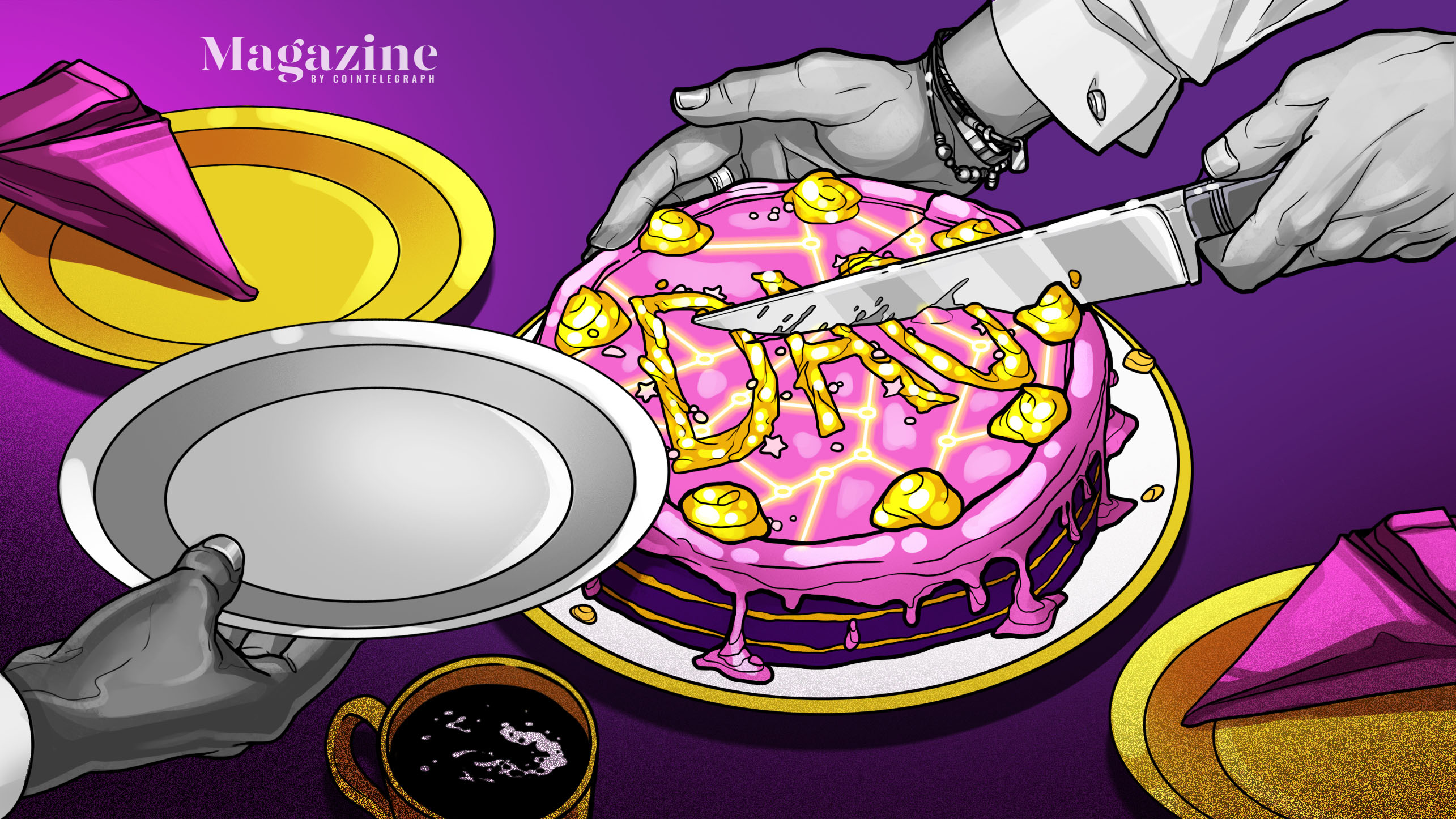
Just five ingredients:
- Establish a common goal, mission or objective.
- Build a community of like-minded people using Discord or Telegram.
- Create a shared fund to finance your goal.
- Construct a governance framework.
- Communicate to the group how the project is developing and disburse rewards as appropriate to contributors.
Let’s take a look at the different flavors of DAOs:
Protocol DAOs
These are DAOs that facilitate the running of protocols.
ENS DAO governs the Web3 protocol that allows users of the Ethereum Name Service (ENS) to create Ethereum names that are both human- and machine-readable. It’s the Web3 equivalent of a DNS service provider.
The Uniswap community uses voting for decision-making on the development and some operations of the Uniswap DEX. UNI tokenholders vote on Uniswap governance, protocol fee changes and UNI community treasury funds alongside other aspects.
Philanthropy DAOs
Philanthropy DAOs are also one of the rarer types of DAO right now. They focus on supporting socially beneficial initiatives that have a shared goal. As the sector matures, it is likely that more philanthropic DAOs will emerge.
Big Green DAO is a U.S.-based 501c3 nonprofit that specializes in giving grants to growing food projects, believing that DAOs simplify and empower nonprofits. It supports schools, families and communities to grow their own food.
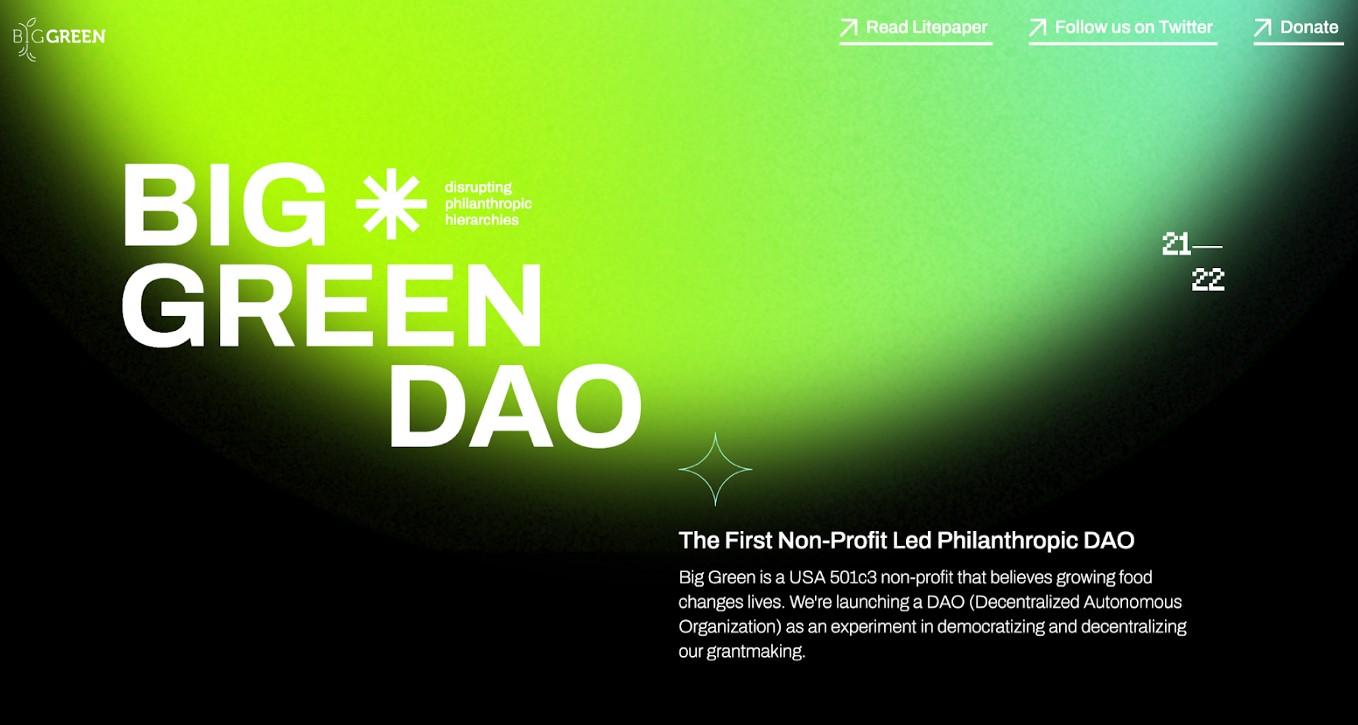
Giveth is a DAO that facilitates sending donations to charitable projects. There are 1,578 projects listed on its website, which include food growing in Costa Rica and feeding the homeless in Canada. There are “trusted third parties” like JustGiving that already do this, but Giveth claims to be more open, transparent and decentralized without taking a large cut of the fees.
Collector DAOs
Many people in the crypto ecosystem are interested in collecting. Collector DAOs focus on accumulating funds so the group can purchase valuable NFTs and other digital collectibles. Some people call collector DAOs “NFT DAOs” if they are about collecting those specifically.
Flamingo, which was the first, specializes in collecting premium NFTs. For example, it paid over $700,000 to own the CryptoPunk #2890 NFT.
PleasrDAO is an art collecting club, where participants purchase what they believe is important art for the community. It describes itself as “a platform for collective experimentation at the nexus of community ownership, DeFi and digital art.”
Investment DAOs
Investment groups have been common for a long time, where a number of people get together to share investment knowledge and split the risk.
Investment DAOs work similarly to traditional investment funds. They operate the same model of using a pool of funds as in the traditional investment funds, although without any centralized controlling entity. In this type of DAO, tokenholders vote on decisions regarding projects for investing funds. Syndicate is an umbrella organization that has facilitated the creation and operation of investment clubs through decentralized mechanisms. It calls these “Web3 Investment Clubs,” where participants can create a group of up to 99 investors, pool their capital, and vote on where to invest those funds.
This morning over 20,000+ investment clubs have now been created on Syndicate 🚀
And this is just the beginning—our next phase is coming. Join us.
Start a club on Ethereum Mainnet or Polygon today:https://t.co/9Mma3mH2xh pic.twitter.com/JybBDsu7Du
— Syndicate ✺ (@syndicateio) July 21, 2022
Grants DAOs
Similar to investment DAOs, there are also grants DAOs. These are tailored for funding and nurturing new projects and ventures, particularly in the DeFi space. Grants DAOs put their funds into projects to advance a particular scheme, which could be to fund scientific research or environmental activism or a whole range of different types of projects.
VitaDAO is an open cooperative that anyone can join, granting funds to research new therapeutics and science aiming to increase the human lifespan.
Meta Gamma Delta is a collective that supports and empowers women-led projects through grant funding.
The way your DAOs will bubble up when mixed together would customarily include:
- Planning
- Drafting and programming smart contracts, wallets and tokens
- Establishing an initial community
- Reaching out to new participants
- Development and change.
Organizations in the conventional world tend to be slower moving, less flexible, and very much less transparent and decentralized than DAOs.
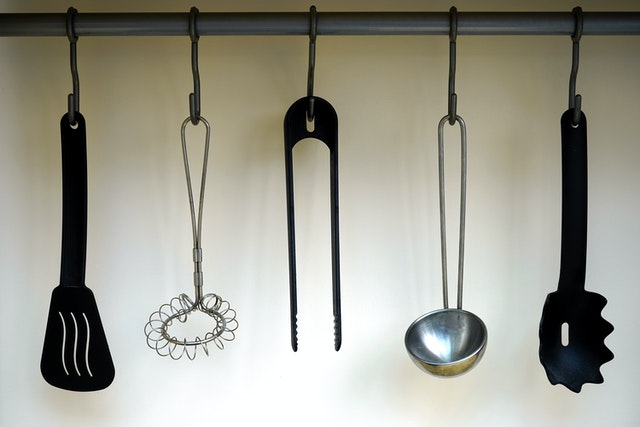
The tools you will need:
Aragon Client, Snapshot, a wallet, and some crypto. ETH is a good choice, but there are others, including any decentralized cryptocurrency that supports DAO creation, such as Cardano (ADA), Solana (SOL) or Polkadot (DOT).
Step 1: Lightly toast governance
Once you have your concept, you will need to put some form of governance in place. Hof of DeepDAO, an organization concerned with researching and supporting better DAO governance, says:
“You need to know what you want to do, and you need a strategy for how to achieve that. You also need research and planning.”
Hof emphasizes the need to be flexible and effective: a rigid plan that is not adaptable in practice is a hindrance. Some DAOs can accommodate fairly passive participants — for example, in investing in companies or NFTs. However, community-led or charitable ventures often demand a degree of commitment from the participants. Hof continues:
If it is a project where committed activists are important, it is better to set up a governance structure and rules that take this into consideration in advance. Since this is all very flexible and even playful and the tools are there for almost any strategy or method of decision making that we are aware of, then you can construct a governance structure that fits your project’s needs.
You essentially create a mini economy around a token. You have to decide what the different activities and priorities and contributions are. “You have a token, which might not just be a unit of value, but also symbolizes all the incentives and goals, so you can align different stakeholders to your objective,” Hof says.
For example, you could have “one person, one vote,” the norm in conventional systems, or you could have a token structure where votes are weighted to those with the most of them: That might be appropriate where there are core active members, or in an investment project where some have staked more money than others, so they have more risk. It really depends on the circumstances.
Hof recommends creating a founding document, a mission statement, and a guide to what you are doing: nothing too rigid, but important nonetheless.
Step 2: Stir in some expertise
Hof continues, “If you had an investment project, you might want to be guided by five people who were experts in the field — 90% of the members might agree to delegate authority to them to make the decisions.”
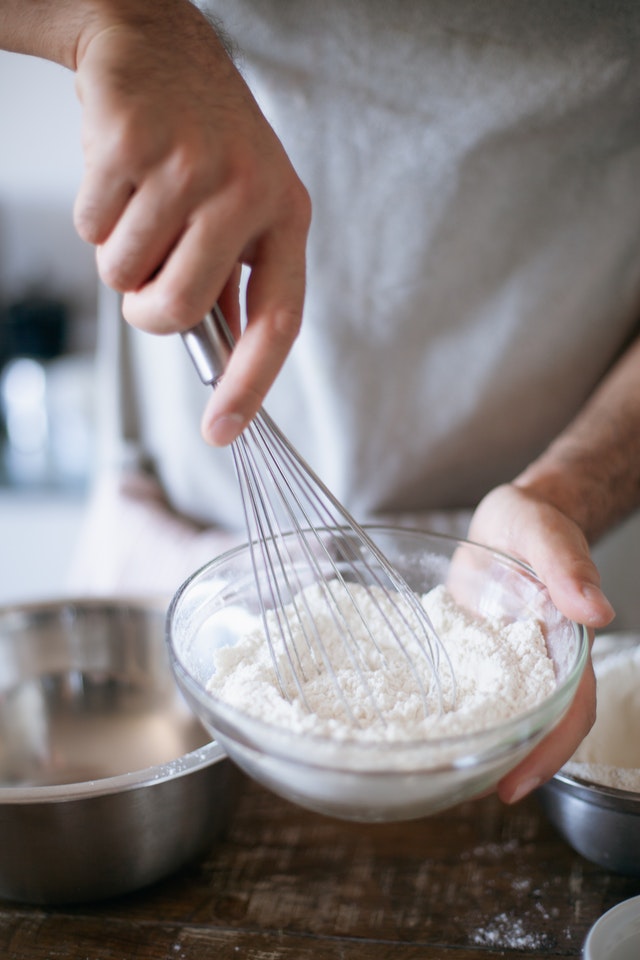
Likewise in areas of scientific expertise, VitaDAO grants funds to groups to explore life extension science. This is at the cutting-edge of science, and while the members are often interested laypeople, VitaDAO needs scientists to carry out the research. The scientific projects do not need to join the DAO — it’s a consensus of the participants who decide what studies to fund.
Hof also stresses the importance of getting good technical people to program your smart contracts because that is a major area where things can go wrong.
Step 3: Heat up the stakes
Wilson of Aragon is a former real-world community activist turned DAOist. He says, “I see a DAO as a little like Kickstarter. Instead of giving you a free T-shirt or free product, a DAO gives you a stake in what you are building.”
It is a new model of high-risk and high-reward community activity facilitated by technology. Over 3,800 DAOs have been built with Aragon’s tools since its inception in 2016, managing billions of dollars worth of assets.
There’s just a big culture around Web3 people that have a different mindset for collaborating. Most people [in the DAO ecosystem] are not working a normal job. Maybe they’re in three or five DAOs that they contribute to and they’re floating around, so you have a much more fluid way of working.
Aragon put out a manifesto that summarizes its mission statement and philosophy: a pledge to fight for freedom, exclaiming, “We believe humankind should use technology as a liberating tool to unleash all the goodwill and creativity of our species, rather than as a tool to enslave and take advantage of one another.”
“Thus, Aragon is a fight for freedom. Aragon empowers freedom by creating liberating tools that leverage decentralized technologies.”
Excited to formalize our partnership with @StarkWareLtd.
We believe that the future of DAO governance needs to be fast and inclusive and that users shouldn’t have to choose between security and cheap fees. https://t.co/GGPpT1IOZg— Snapshot (@SnapshotLabs) June 9, 2022
Step 4: Mix and match voting methods
Developer and entrepreneur Fabien developed Snapshot as a side project on weekends. His day job is working for Balancer as a developer, which is an automated trading platform.
Snapshot’s taken off because it is a simple and free method of voting in DAOs, which is off-chain and efficient in utilizing resources. On-chain voting uses hard-coded voting systems built into the blockchain smart contracts. Tezos is an example. On-chain voting is effective but quite resource-intensive, so keeping voting off the main blockchain is often desirable.
Fabien says, “We have 300 voting strategies, and then they all have a different way of working, and you can pick one of them if the way you want to calculate voting was already there, or you can create a new one and upload it to our site. It’s free and allows all kinds of optimization of voting between participants.”
Fabien believes that DAO-enabled voting structures will eventually enable a greater degree of democracy and more flattened decision-making than is conventionally organized in Western politics.
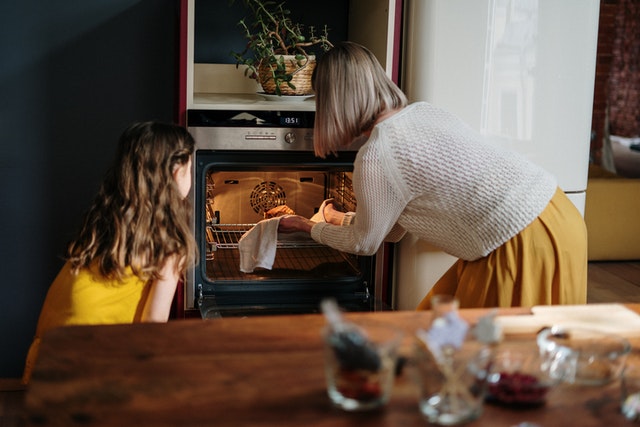
Step 5: Bake it, then the DAO’s ready for public consumption
Wilson says, “The tool that Aragon operates is basically you can press a few buttons and then you are ready. If this proposal passes, then the money should move to this account. Everything is tied together with smart contracts.”
Wilson gives as examples two projects Bankless and OceanDAO: Ocean DAO is a DAO to clean up the oceans. Wilson continues, “This is a big vision with social ownership. There is no overall plan: The community will take it step by step.”

Bankless DAO is a decentralized community whose mission is to move the world away from banks. Given the power that banks have over everybody, this seems an interesting project.
Wilson notes, “There’s also a lot of stuff that DAOs do that’s not on the blockchain.” This speeds up the process and stops blockchains from being clogged up with information that could easily reside elsewhere.
Recipe note:
DAOs are in their infancy. Clearly, there is a massive amount of development needed and also outreach so people who might consider a more conventional vehicle for their project — a voluntary group, a charity, a club — need to be made aware that DAOs could also fulfill this purpose in a much more democratic and transparent way than most conventional organizations.
There needs to be more work by regulators on the legal status of DAOs. So far, only Wyoming has passed legislation to enable people to incorporate a DAO LLC in the state, therefore, giving all the participants a degree of legal protection that a normal DAO cannot. (Australia is also considering legislation to address this.) The legal status of DAOs is a thorny issue, particularly if large amounts of funds are involved, but given the sluggishness of both the law itself and legislative bodies, it doesn’t seem that there will be much clarification of this in the near future.
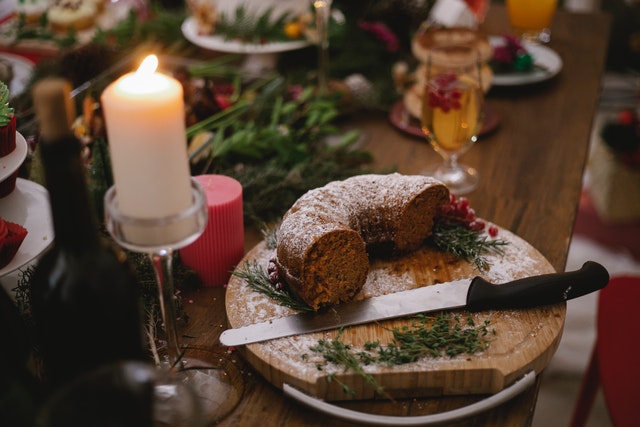
To serve: Cut the cake and pass it around
Wilson feels a major difference between DAOs and both conventional finance and even the rest of the cryptocurrency sector is “exit to community.” Many startups get big, then they sell out, and the founders leave.
Wilson feels that selling tokens and exiting to members of the community is a more positive way of moving on from a project. With the flexibility of DAOs, the departure of the founder or a large change of direction is not the shock it can be in other types of organizations.
NOTE: The nutritional value of DAOs may vary, and some can have indigestible ingredients, so you need to check the small print before you consume them.
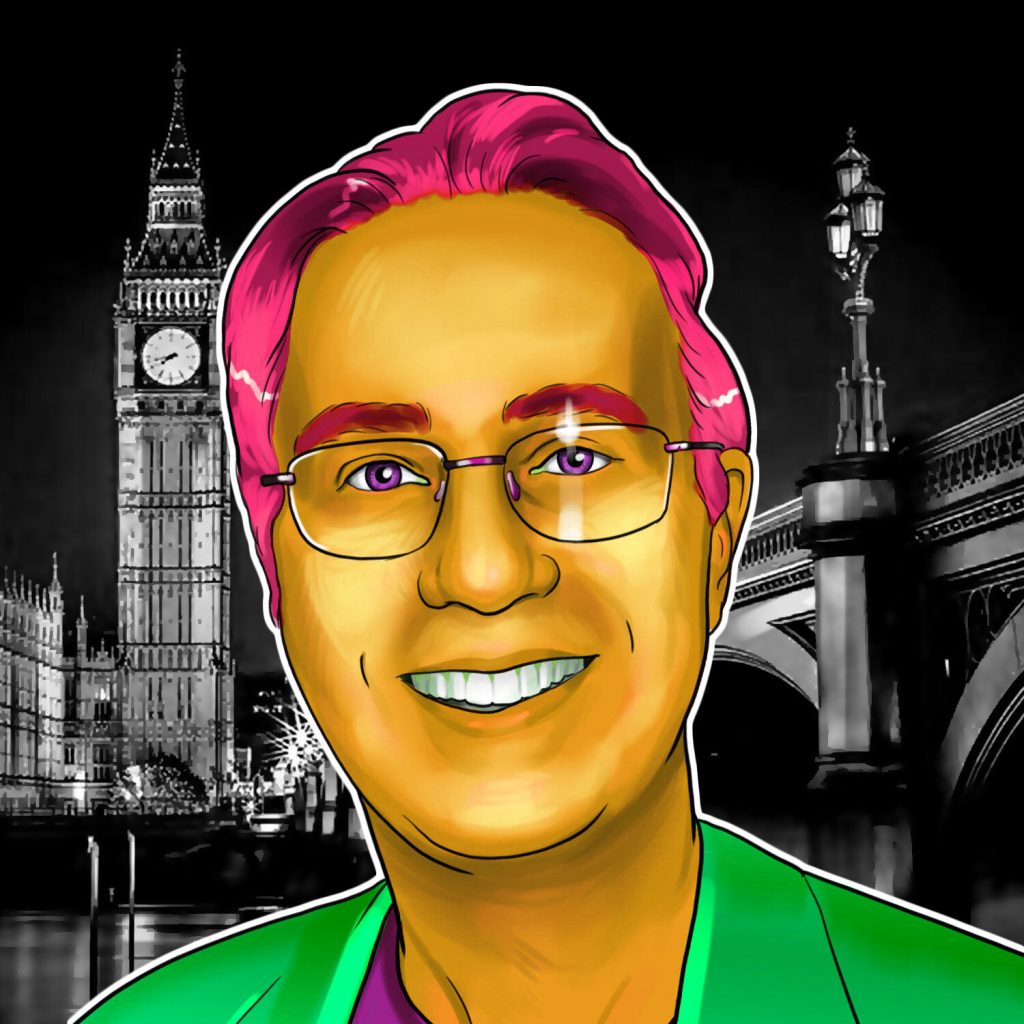
Julian Jackson
How do you DAO? Can DAOs scale and other burning questions
What is a DAO, how do they work, and are they the future or just a passing fad?
Read moreBillions are spent marketing crypto to sports fans — Is it worth it?
“Without explicit use cases tied to the massive dollars paid for sports marketing sponsorships, the branding only leads to logo exposure.”
Read moreFake JD stablecoins, scammers impersonate Solana devs: Asia Express
